On 21 September 2023, the Foundation proudly hosted a remarkable event to celebrate our supporters who have chosen to leave a gift in their Will. The Friends for the Future event at Hadley’s Orient Hotel was a wonderful opportunity to celebrate legacy giving and unite a community of like-minded individuals who are committed to improving the health and wellbeing for future generations.
Guests were treated to an enlightening presentation by Dr Niles Nelson, who discussed her research into families with blood cancers. Niles’ ground-breaking research was made possible through the generous bequest of the late Mrs Betty Rose Bateman, who had the incredible foresight of leaving a gift in her Will to the Foundation. Mrs Bateman’s gift has also been instrumental in funding two further research projects on predicting apnoea in premature infants and a game-changing study on the Hobart Method.
An event like this wouldn't be possible without the incredible support of the Foundation's event partner Butler McIntyre & Butler. Their warm and approachable team also played an important role in assisting our guests, addressing their questions about the process of making and updating their Wills, and ensuring that their intentions were aligned.
Engaging with such a dedicated group of Foundation supporters in this intimate setting was a true pleasure. It was a delight to be able to share our unwavering passion for medical research and the transformative impact it can have on our community.
If you're inspired by the idea of joining this exclusive group and becoming a Friend for the Future, please reach out to our friendly team on 03 6166 1319 or at research@rhhresearchfoundation.org to find out more.
Thanks to the ongoing support of our community, the Royal Hobart Hospital Research Foundation has proudly improved the lives of premature babies worldwide. One recent Foundation-funded study has revealed long-term positive results for a Hobart-designed technique designed to reduce ongoing respiratory problems for babies born too soon.
Pre-term babies often receive a natural product called surfactant, designed to promote lung expansion and improve their oxygen levels. A decade ago, the Foundation funded Professor Peter Dargaville and his team at the Royal Hobart Hospital Neonatal Intensive Care Unit to develop a less-invasive procedure to deliver surfactant to these vulnerable newborn babies. Known as the "Hobart Method", this procedure has been adopted by many neonatal intensive care units worldwide.
More recently, the Foundation funded Professor Dargaville and his team to examine the long-term impacts of this incredible technique through the OPTIMIST-A trial, with the results recently published in the prestigious Journal of American Medical Association (JAMA). The study examined two groups of pre-term babies, with one receiving surfactant via the Hobart Method and another control group that didn't receive the Hobart Method. Incredibly, the study found a 34 per cent reduction in respiratory-related hospitalisations after two years for children who received surfactant via the Hobart method. Parents also reported reduced wheezing and breathing difficulties for children in this active group.
Professor Dargaville proudly states, "We think that the findings of our follow-up study, showing as they did such a significant improvement in respiratory health, will cement the place of this therapy for pre-term infants worldwide."
None of this would have been possible without the support of our donors, who played a pivotal role in turning this vision into reality. Thanks to the generosity of the local community, the Foundation was able to fund the original project and give the research team the necessary boost to successfully carry out the follow-up study to prove the treatment's long-term success.
The OPTIMIST-A trial was coordinated and run by Menzies and supported by the National Health and Medical Research Council.
You can support studies like the Hobart Method by donating to the Foundation at donate.rhhresearchfoundation.org or calling 03 6166 1319.
High blood pressure is the leading risk factor for cardiovascular disease, with more than one in three Tasmanian adults living with the condition and many others likely undiagnosed or ineffectively treated. With a commitment to improving the health outcomes of our community, the Foundation has supported critical research to better detect and manage this condition.
Leading this ground-breaking research is Dr Martin Schultz and his team at the Menzies Institute for Medical Research, who have investigated how exercise can identify people with high blood pressure.
“My research program has established that abnormally raised blood pressure during clinical exercise testing (termed a ‘hypertensive response to exercise’) is associated with increased cardiovascular disease risk, likely because of uncontrolled high blood pressure that has not been detected via standard measures of blood pressure taken at rest,” Dr Schultz explains.
Dr Schultz has continued his research into this condition through a recent Foundation-funded study known as the Exercise Stress Test Collaboration (EXERTION) Study. The EXERTION Study is a national database of clinical exercise stress tests linked to cardiovascular disease outcomes.
“Funding from the Royal Hobart Hospital Research Foundation is allowing us to continue to explore the clinical value of measuring blood pressure during exercise. Using data from the EXERTION Study, we discovered that to make a clinical interpretation of a hypertensive response to exercise, we must also consider individual fitness levels,” Dr Schultz says.
These critical observations will likely contribute to international guidelines for exercise testing. Dr Schultz hopes his work will reduce the community’s significant burden of high blood pressure and cardiovascular disease.
Your donations will help us support researchers like Dr Martin Schultz. Please donate today at donate.rhhresearchfoundation.org or call 03 6166 1319.
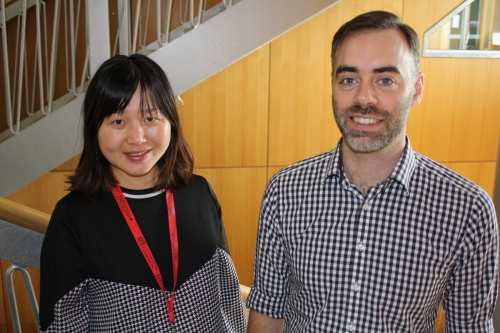
Imagine a world where every mother and her baby receive the best possible care, backed by ground-breaking medical research. Thanks to the incredible donations to the Royal Hobart Hospital Research Foundation, this vision is becoming a reality. The generosity of the community has made it possible for us to fund vital research projects that focus on supporting mums and their precious little ones.
One Foundation-funded study that concluded earlier this year, focused on improving the health outcomes for pregnant women. Two-thirds of Australian adults grapple with the burden of being overweight or obese, and unfortunately, expecting mothers often contribute to this alarming trend. Acknowledging the pressing need for change, Dr Michelle Kilpatrick spearheaded the Health in Preconception, Pregnancy, and Post-Birth (HiPPP) study at the Royal Hobart Hospital.
Dr Kilpatrick and her team explored strategies to empower pregnant women attending the hospital, to help them make positive lifestyle changes to improve health outcomes for themselves and their precious babies. The HiPPP study triumphed by establishing ground-breaking partnerships with researchers and clinicians from hospitals across the country and overseas to implement evidence-based training programs to provide practical and sustainable support to mothers.
Dr Kilpatrick expressed her heartfelt gratitude acknowledging that this research “would not have been possible without the support of the Foundation and we thank the donors for helping improve the health of mothers and babies in Tasmania."
To continue to support mothers and their babies, the Foundation funded another crucial study this year that is focused on women grappling with chronic kidney disease (CKD) who aspire to start a family. As the prevalence of kidney disease continues to rise, particularly among women contemplating motherhood, this project carries immense significance. Led by Prof Matthew Jose, the project aims to provide population estimates linking kidney function to maternal and baby outcomes. By unravelling this crucial connection, the study seeks to lay the groundwork for implementing preventative measures and will allow healthcare professionals to provide informed guidance and support to women who want to start a family.
Thanks to all our donors for supporting the Foundation and the next generations of Tasmanians.
You can support research to help mothers and their babies by donating to the Foundation online or calling 03 6166 1319.
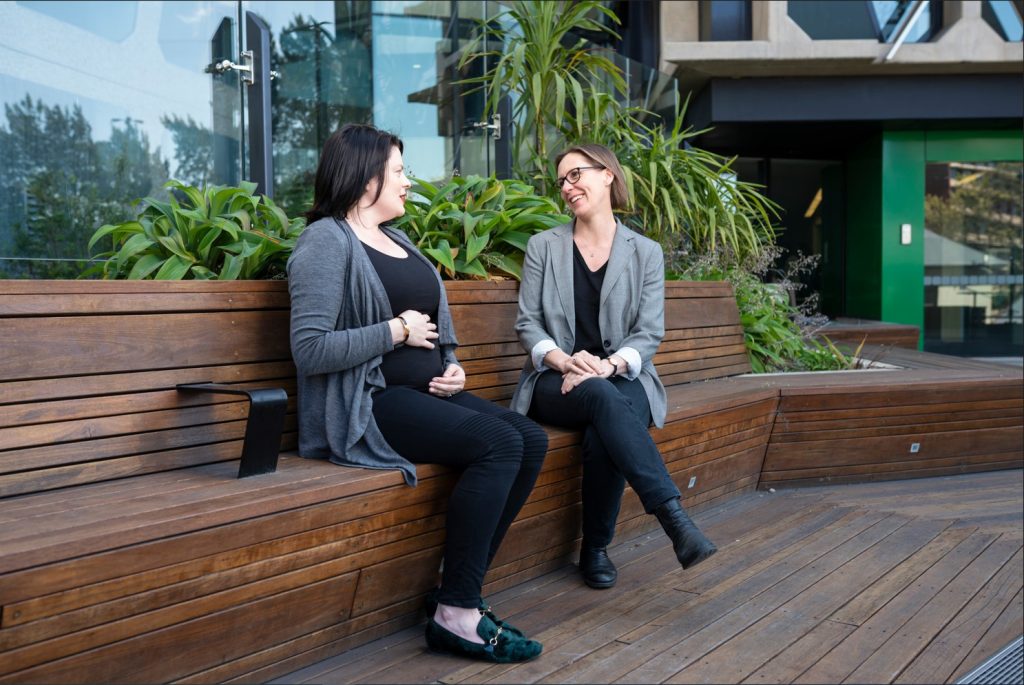
The Foundation’s esteemed researchers Associate Professor Jane Alty and Dr Jessica Collins came together to discuss dementia in our inaugural Research Matters seminar.
We invite you to watch this hour-long information session below, where A/Prof Alty and Dr Collins discuss the novel ways of detecting dementia, ways to reduce the risk of getting disease, innovative treatment methods and the latest research in this space. It is an informative and riveting discussion about a disease that affects over 400,000 Australians.
Thanks to Josh Duggan for facilitating this discussion and to Hobart Private Hospital for supporting the event.
For years, the Royal Hobart Hospital Research Foundation has been dedicated to improving the health and wellbeing of our community by funding innovative medical research. Thanks to the generosity of our community, we have been able to make incredible strides towards a brighter and healthier future for local Tasmanians.
It was through this generosity that a Tasmanian doctor was able to pioneer a less invasive way to treat premature babies with breathing problems. In 2012, the Foundation provided funding for Professor Peter Dargaville and his team at the RHH Neonatal Intensive Care Unit to develop this novel procedure, using a catheter instead of inserting a breathing tube, to treat newborns in respiratory distress. Now known as the Hobart Method, it has since changed the lives of thousands of the most vulnerable babies around the world.
Twins Emmy and Mila, who were born 10 weeks early, had their lives saved by this revolutionary treatment. Looking at them now you couldn’t tell them apart from any other nine year old!
The twins' mum Lauren said that “It was an easy choice to opt for the Hobart Method as opposed to the more invasive alternative.”
She explained that the traditional method would have “required intubation, which is a tricky procedure in itself, and carries risks of pneumonia, as well as possible damage to the lungs and vocal cords.”
The revolutionary and less invasive Hobart Method “left no short-term damage and we’ve seen no long-term issues in the girls,” a delighted Lauren explained.
The Royal Hobart Hospital Research Foundation urgently needs your help to keep funding ground-breaking research to change the lives of local Tasmanians like Emmy and Mila.
Your gift to the Foundation will allow us to develop new treatments and cures for heart and lung conditions in premature babies, cancer, cardiac disease, dementia, and other conditions that impact our local community. Your support will be vital to improving the quality of life for Tasmanians living with a variety of health conditions.
So, this tax time, please donate to the Royal Hobart Hospital Research Foundation and allow us to keep funding innovative research right here in Tasmania. Your local gift can truly make a difference and help save lives.
P.S. The Royal Hobart Hospital Research Foundation needs your help, now more than ever, to fund medical research that directly benefits the health and wellbeing of Tasmanians. Can you make a tax deductible donation today to help save lives?
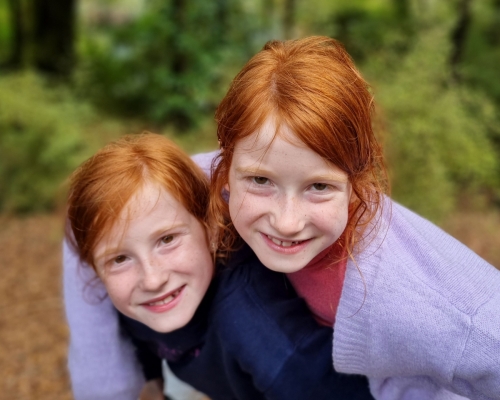
On Friday 7 April over 2000, people descended on Hobart’s Royal Tasmanian Botanical Gardens to take part in the Royal Hobart Hospital Research Foundation’s 11th annual Easter Egg Hunt. Despite a slightly gloomy forecast families eagerly flocked to the gardens early to make the most of their Good Friday.
Enthusiasm wasn’t in short supply as children deciphered the clues that led them on a quest throughout the gardens until they stumbled upon a hoard of chocolate Easter Eggs. The children were greeted with appearances by Freddo Frog, Caramello Koala, and even the Easter Bunny!
Special thanks to the incredible partners and sponsors that helped make this event possible - Chemist Warehouse, Optus, Pulse Hobart, and the Spirit of Tasmania.
We are delighted to announce that the event raised over $30,000 for local medical research which means that the Foundation will be able to fund three more incubator grants in 2024. This is a phenomenal effort and something that the Foundation couldn’t have achieved without the support of the Hobart community!
Congratulations to the following people who won prizes in the Foundation’s raffle and ‘guess the quantity’ competitions on the day. Prize winners have been contacted directly.
We look forward to seeing you all again next year!
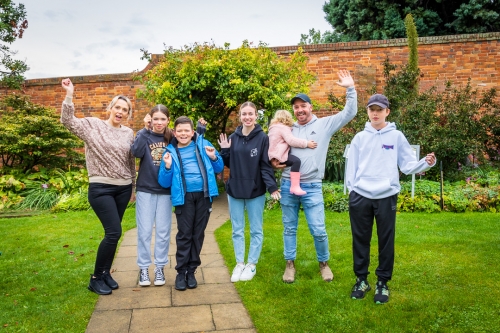
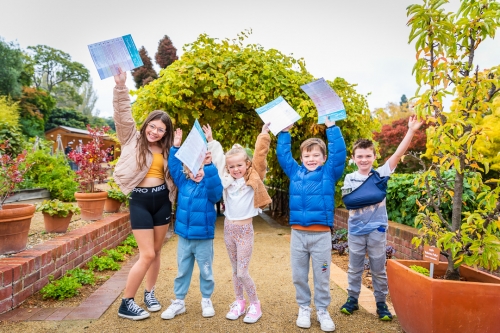
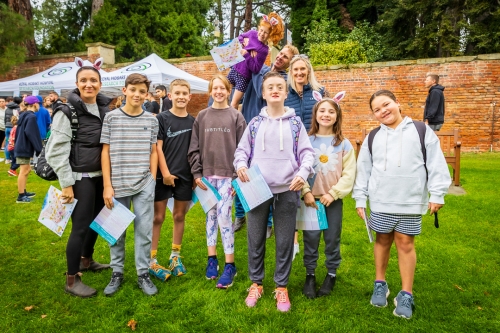
Across the world, there is an alarming increase in mental health presentations to Emergency Departments (ED) by children and adolescents. Currently, very little is known about why this is happening, which is why research is vital, now and into the future.
For young Tasmanians experiencing mental health challenges, the Royal Hobart Hospital’s ED can be an initial or recurrent point of contact which provides an opportunity to address acute risk and provide early intervention. It also provides scope for much-needed local research.
We already know that optimum care for this vulnerable population requires sensitive consideration and a collaborative approach which is truly centred on these young people and their families. As with any large system, gaps can sometimes appear in complex care. A current research project aims to close those gaps with new approaches to care based on local research.
The 2020 Project Grant “The Kids are Not Okay – Understanding child and adolescent mental health presentations to the Emergency Department” has been generously supported through the Royal Hobart Hospital Research Foundation by a local Tasmanian family with teenagers. They understand the impact of mental health challenges and the need for coordinated support that spans community and hospital care. Importantly, the family also recognise the need for research to guide how this should be enhanced in our local community, with learnings to then be used far and wide to improve lives of families locally, nationally and internationally.
This funding will enable a local research team made up of doctors from the RHH including Dr Viet Tran, an Emergency Physician, and Dr Nicholas Watkins, an Emergency Physician and Paediatrician, who will collaborate with an internationally renowned emergency paediatric researcher, Professor Simon Craig.
Tasmania is not immune to this increasing trend of mental health presentations to ED by children and adolescents. Our mental health service is unique and in tailoring care to young people’s varying needs, it is important to understand how hospital and community-based care can best be coordinated to support these vulnerable patients. Through carriage of this research, funded by the Foundation, our local patients, families, and clinicians will also have the opportunity to become part of a national study which will set the priorities for further research and health care investment at an even broader scale.
Understanding more about young people’s mental health presentations to ED, gaining insight into current care and how this matches against their needs will help build a new model of care for this vulnerable population, aiming to ensure a higher standard of care that arguably all Tasmanians deserve to enjoy.
Please consider providing a gift this June that will support local researchers on their quest for better community health outcomes now and into the future – it means so much to all of us and will help shape our children’s future.
For support and advice | www.beyondblue.org.au | 1300 22 4636
All donations over $2 are tax deductible. You can donate to support more research like this here.